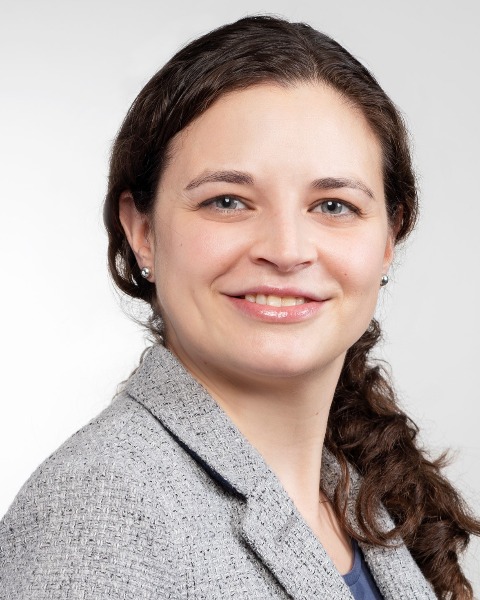Dissemination & Implementation Science
Adaptation and Implementation of the BRIDGE model in the Philadelphia School System
(PS5-C65) Adaptation and Implementation of the BRIDGE Model in the Philadelphia School System
- MW
Michal Weiss, B.S.
Clinical Research Coordinator
Perelman School of Medicine at the University of Pennsylvania
Philadelphia, Pennsylvania - ST
Shannon Testa, B.A.
Clinical Research Coordinator
Perelman School of Medicine at the University of Pennsylvania
Philadelphia, Pennsylvania - JW
Julie Worley, Ph.D.
Assistant Professor
Perelman School of Medicine at the University of Pennsylvania
Philadelphia, Pennsylvania - JA
John Armstrong, Ph.D.
Postdoctorate Fellow
Perelman School of Medicine at the University of Pennsylvania
Philadelphia, Pennsylvania - AW
Akeesha Washington, M.S.
Licensed Professional Counselor and School-Based Consultant
Perelman School of Medicine at the University of Pennsylvania
Philadelphia, Pennsylvania - GL
Gwendolyn Lawson, Ph.D.
Assistant Professor
The Children’s Hospital of Philadelphia
Philadelphia, Pennsylvania - EC
Elise Cappella, Ph.D.
Vice Dean for Research, Professor
New York University
New York, New York - SH
Sophia Hwang, Ph.D.
Postdoctoral Scholar
University of California, Berkeley
Berkeley, California - CC
Carrie Comeau, MSW
Director, EPIC
Community Behavioral Health, Department of Behavioral Health and Intellectual disAbilities Services
Philadelphia, Pennsylvania 
Courtney Wolk, Ph.D.
Assistant Professor
Perelman School of Medicine at the University of Pennsylvania
Philadelphia, Pennsylvania- AV
Amber Lee Venti, M.A., LPC
Evidence-Based Practice Implementation Specialist
Community Behavioral Health, Department of Behavioral Health and Intellectual disAbilities Services, Philadelphia, PA
Philadelphia, Pennsylvania
Author(s)
Co-Author(s)
The number of children diagnosed with attention-deficit/hyperactivity disorder (ADHD) and disruptive behavior disorders such as oppositional defiant disorder and conduct disorder (DBDs) far exceeds the capacities of public-school systems to serve them, especially in under-resourced, urban districts. Our previous research indicates that 82% of youth receiving school mental health services in K-8 Philadelphia public schools have a primary diagnosis of ADHD or a DBD. Evidence-based classroom interventions can help these students, but teachers often lack the training and support to deliver them effectively. Having mental health clinicians consult to teachers is an important component of evidence-based practice (EBP) for youth with externalizing disorders.
Our team, in partnership with a large urban school district and local Medicaid managed care organization, is rolling out one evidence-based teacher consultation model, Bridging Mental Health and Education in Urban Schools (BRIDGE; Cappella et al., 2011) across 150 schools with 180+ clinicians over a three-year period, which began in November 2021. BRIDGE is an intervention designed specifically for public schools serving low-resource, high density communities that embeds teacher consultation and coaching activities into mental health teams’ regular workflow. The clinicians are trained in BRIDGE in four half-day sessions and meet with expert consultants for weekly, followed by monthly, consultation. School-based clinicians’ coach teachers in using universal and targeted classroom interventions to address challenging student behaviors, with the goal of increasing on-task behavior and reducing disruptive behaviors among students. A randomized controlled trial in New York City schools with primarily Latinx and Black students found BRIDGE increased effective classroom interactions and improved teacher-student relationships and academic self-concept. Additionally, children with externalizing symptoms in BRIDGE classrooms experienced less peer victimization than children in classrooms where teachers did not participate in BRIDGE.
The implementation process was guided by the Exploration, Preparation, Implementation, Sustainment (EPIS; Aarons et al., 2019) framework. In this presentation we will describe (1) the collaborative exploration process that led to the selection of BRIDGE as one of several evidence-based practices to implement; (2) preparatory work including adaptions to BRIDGE made in partnership with the intervention developer to prepare for wide-scale implementation in the Philadelphia context (e.g., streamlining intervention strategies to align with clinicians’ scope of work in this funding model, increasing cultural responsivity and awareness of trauma, and prioritizing strategies that would be most feasible for teachers to learn and implement in under-resourced classrooms); (3) initial implementation activities and adaptations necessitated by the COVID-19 pandemic (e.g., virtual trainings and consultations, adapted strategies), and (4) sustainment plans. Our team is currently in year one of the three-year planned implementation rollout; we will have trained approximately 50 clinicians from 9 agencies by September 2022.

